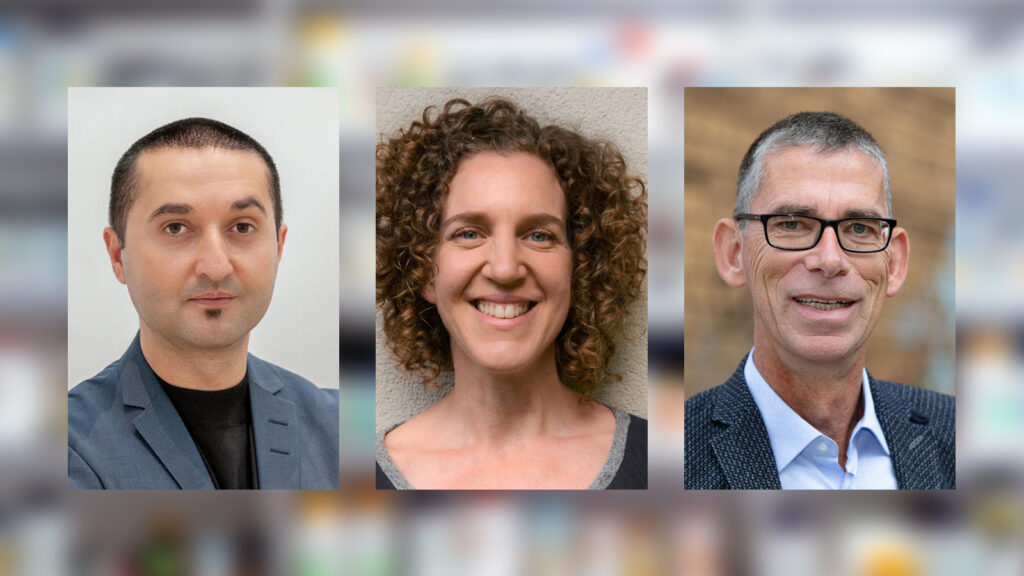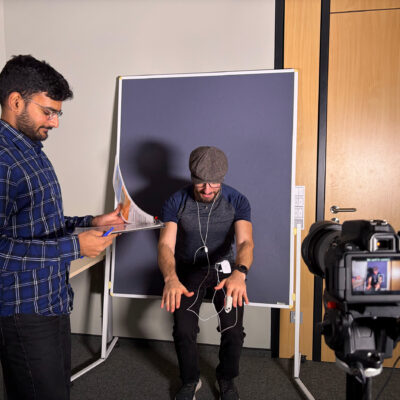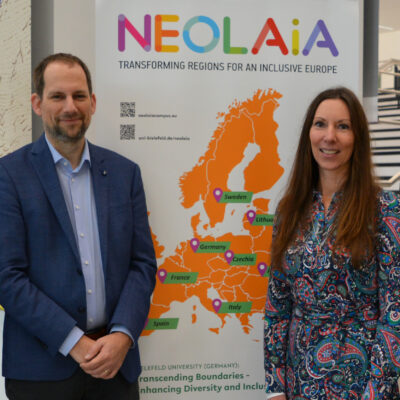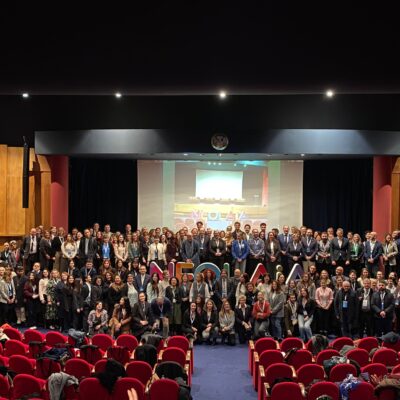Migration and health in Europe is the subject of a new series of articles in a Lancet journal. Three of the university’s health scientists are among the authors. The series starts with a special issue. The issue is launched in Geneva (Switzerland), alongside the World Health Assembly, which is also being held there. The articles deal with topics such as vaccine equity, racism and discrimination.
Professor Kayvan Bozorgmehr, MD, Dr Nora Gottlieb and Professor Oliver Razum, MD, all from the Bielefeld School of Public Health, contributed to two of the seven articles in the special edition.

© (from left): Britta Kirst, Universität Bielefeld, Mike-Dennis Müller
Presenting constructive narratives instead of problems
In their article, Nora Gottlieb as first author and Kayvan Bozorgmehr as last author, together with colleagues, look at how negative narratives about migrants can shape public opinion, even though they are often unfounded or false. “Migration and health research can learn from this,” says Nora Gottlieb. “One realisation, for example, is that feelings, values and personal views are often more important for decisions than evidence.” According to the article, it shows that it is more important to offer solutions – rather than just pointing out problems and complexity. The article makes recommendations on how positive narratives can be sponsored to make health policy more inclusive. Kayvan Bozorgmehr: “This includes not repeating misanthropic narratives and thereby unintentionally reinforcing them, but replacing them with alternative narratives that are constructive and value-based.”
Anchoring diversity in the healthcare system
Migrants are often exposed to poorer healthcare conditions due to social disadvantages in their host country. Oliver Razum is co-author of an article in the special issue and calls for the healthcare system to adapt to immigrants. Razum emphasises that immigrants are members of the social and health insurance system and that healthcare services must therefore adapt to their needs. “This already starts dates in the training of doctors and healthcare staff, who have to learn how to deal with increasing diversity.” As an example of a project for more equal opportunities in healthcare, Razum cites “Empowerment for Diversity“, in which the University Department of Gynaecology and Obstetrics at Lippe Hospital (part of the University Medical Center OWL) is involved. “When the healthcare system adapts to diversity,” says Razum, “everyone benefits, as everyone has different wishes and needs when it comes to their healthcare.”
Impulses for inclusive healthcare
A total of seven articles will appear in the special issue – as part of the specialist journal “The Lancet Regional Health Europe”. They will be published alongside the World Health Assembly, which will be held in Geneva from 27 May to 1 June 2024. Representatives of the member states of the World Health Organisation (WHO) will meet there to discuss the WHO’s priorities, budget and guidelines.
Kayvan Bozorgmehr: “This special issue provides empirically based impulses for the political handling of migration and health in Europe. It also serves as a call to action. We hope that the findings and recommendations from our contribution and the articles by our colleagues will be used to work towards more inclusive healthcare.”
The articles in the special issue are open access, i.e. freely available. They are published by the Lancet Migration European Regional Hub. The network brings together researchers, civil society, non-governmental organisations, multilateral organisations, political decision-makers and migrants – with the aim of linking findings from science, policy and practice. The network is led by the Lancet Migration initiative and the Geneva Centre for Humanitarian Studies. Lancet Migration provides research findings and policy recommendations on the health needs of migrants.
[Translation generated with automated support]




